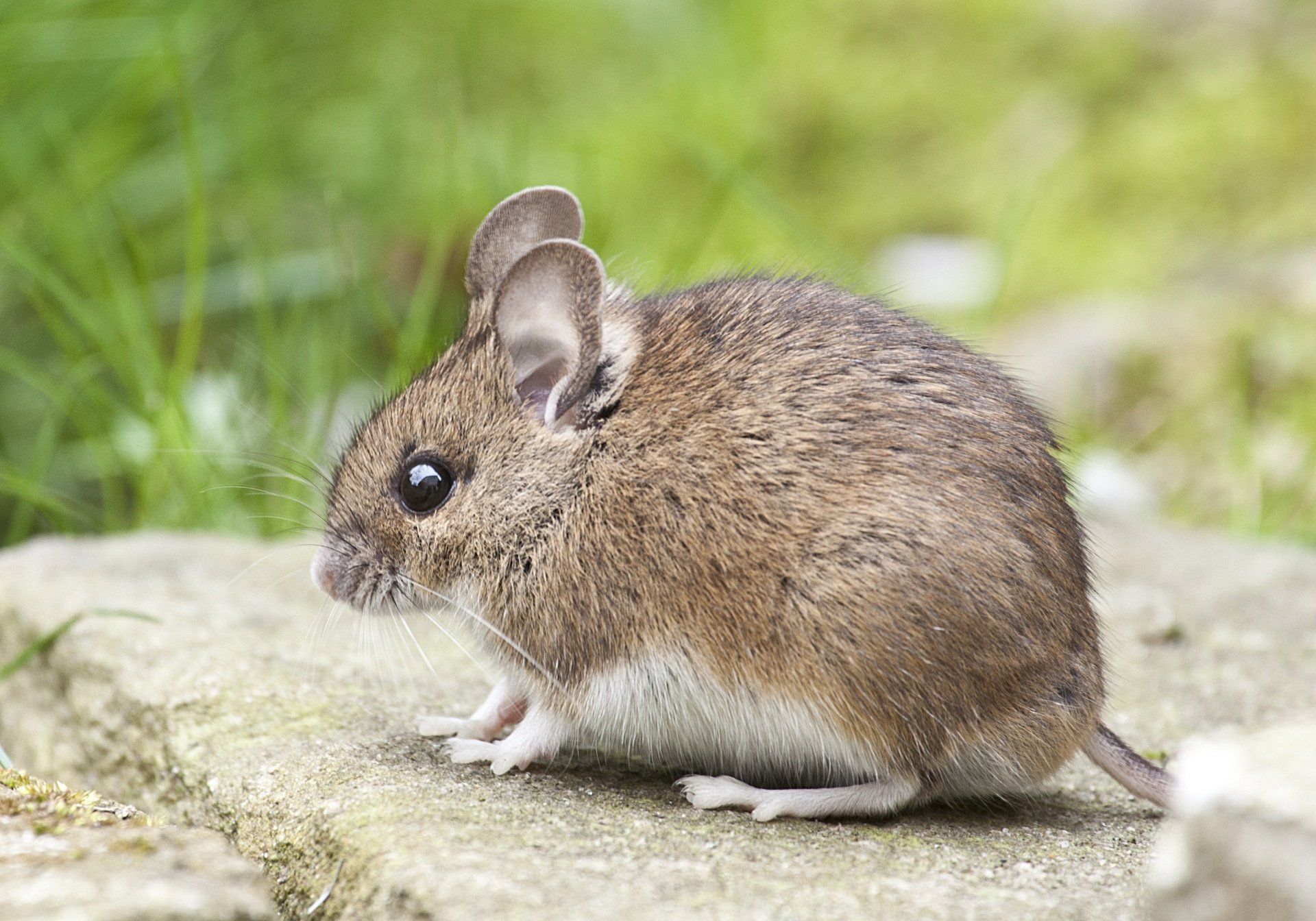What Causes Sugar Ants?
March 31, 2022
Ants seam to appear out of nowhere!

In the middle of preparing supper or sipping a cup of coffee, you see a swarm of black ants crawling all over the place. There is something frightening about seeing ants in your living quarters, even though the insects are tiny and don't usually attack humans.
Even if you keep clean regularly, sugar ants may still get into your house. In particular, if you have children in the house, they make it difficult to keep track of all the sweet products that attract ants, such as juice and jelly. So, where do sugar ants originate from, and how can you get rid of these unwanted pests if you have an infestation?
Sugar ants will start to infiltrate homes to get food and water in the spring. Even though these ants aren't harmful to people, they're a nuisance that can be tough to get rid of. From the most remarkable natural and chemical therapies to preventative measures that keep these sugar ants coming back, here's everything that you need to know to get rid of them.
What are sugar ants?
In some regions, sugar ants, or banded sugar ants, are tiny black ants that are only found there. Pavement ants (also known as pharaoh ants) and sugar ants are common household insects. Pharaoh ants have yellow or light brown bodies and reddish-brown or black legs.
This species of ant is drawn to sweets of all kinds and leftover sugary dishes. They also ingest plant pollen, lipids, and proteins (which they get through devouring other insects). They'll bring food back to the nest for the remainder of the colony once they discover a food source.
Where do sugar ants come from?
Outside of your home, most sugar ants are attracted to your food. Pests like mosquitoes and other mosquito-like insects have four to five times more olfactory receptors than other insects, so they can detect food and follow scent trails in your home and foundation. One ant is all that is needed to discover a way in. As soon as an ant finds food or water, it leaves a small trail for other ants to follow, called a pheromone.
Sugar ants might also enter your house through existing nests. They like to build their homes in places that aren't disturbed, such as inside walls or basements.
How to get rid of these unwanted guests:
Getting rid of sugar ants begins with finding and following their visible path, which will help you discover their entry point into your home and provide you a starting point for remediation, so do this first. Choose between a natural or chemical approach when you've found the route and the entry site. Ants may be controlled in a variety of ways.
Sugar ants may be exterminated using natural techniques
The following natural home cures for sugar ant infestation will help you avoid using harsh chemicals:
- Put one part vinegar and one part water in a spray bottle and spray the solution on the ants. A component of vinegar called acetic acid masks the odor of ant trails and served as a repellent for these pesky insects. Spray around baseboards and any probable entrance paths and trails after locating the ant entry site to discourage ants from moving along these routes. Once the ants have been sprayed, use a paper towel to clean up the dead ants and throw them away. Spray in the morning or late afternoon, when ants are most busy, to get the most out of this home cure.
- The acidity and odor of coffee repel ants, so scatter used coffee grounds throughout your home. To keep ants away from your pets and other food sources, sprinkle used coffee grounds around their food bowls. If you want to keep ants out of your house, scatter some coffee grounds around the perimeter.
- Put out whole cloves or bay leaves—The components in cloves and bay leaves that cause the pungent scent do an excellent job of deterring sugar ants. To prevent ants, place whole cloves along the baseboards and bay leaves beneath the counters.
- If you want to keep ants away from your food, hang some garlic cloves or bay leaves in your cupboard. Garlic may be hung from the knobs and shelves of your cupboard using string.
- Insect repellent may be manufactured at home by combining one part of water with a few drops of lavender or peppermint essential oil in a spray container. You may use the remedy to keep ants away from your kitchen island and pantry shelves.
- Using honey or corn syrup, place a plastic plate on a table. Attracted by the bait, the ants will be entangled in the sticky material. Discard the dish and any rubbish you've collected after killing the ants.
- Use commercial organic products—they're better for you and the environment. Organic products for sugar ants are highly effective options.
Do all those options sound like a lot of work and you'd like an easier option? Give Ground Pest Control a call today and we can help you prevent this issue from happening in the first place! We use natural products that are safe for your family and pets, so you can be sure our methods are only getting rid of pests similar to those ants.

You call pest control if you see a hornet's nest or too many spiders. However, you don't have to merely "respond" to insect problems. You can set a quarterly pest control plan if you want to keep pests out of your home. How this works is a pest control professional will visit your home every three months to address any issues and take preventative measures if your house has a history of reoccurring pest issues. Setting up a quarterly pest management strategy ensures that you never run out of protection against pests. Cockroaches, for example, can be eradicated with pest control. There are several reasons you might want to avoid using pesticides, such as the fact that they might harm the ecosystem. The technician will be able to see whether you've had roaches or any other pests in the past and perform preventative steps and general protection with a quarterly prevention strategy. Unfortunately, paying extra for pest control is almost often the result of a Band-Aid approach. One-time pest control treatments are still reasonably priced, but the damage bugs do to your house may wreak havoc on your finances. Pests such as termites and carpenter ants can go undetected for lengthy periods, so the damage they have caused can be catastrophic when you do locate them. While it may seem like an unnecessary expense at first, quarterly pest control may be an investment in the health and well-being of your family. What is quarterly pest control? Pests are out and about all year around. Most of the time, you're only made aware of their presence after major damage has been done to your property. As a result, a single visit from a pest control professional is insufficient to keep them at bay. A great solution to this is to have pest control performed four times a year. As the name implies, the goal of this tactic is to keep invasions at bay in the first place. A professional will do frequent inspections and treatments for pests on your property (ideally four times each year). How can quarterly pest control be beneficial? The advantages of performing pest control every three months are innumerable. Included are: It Saves You Money in the Long Run - Every time a professional arrives to deal with an infestation issue, customers typically pay a fee. Because of this, it can end up costing you much money in the long term. But with quarterly pest treatment, you get a package that covers all of the quarterly appointments at once. We'll take care of any further infestations for free. Ensures That Pests And Diseases Do Not Infest The Property - To keep pests from invading your house, pest control professionals use sophisticated equipment regularly. Thanks to this method, any possible problem may be dealt with before it gets out of hand and becomes more expensive. Most bugs, as you may have heard, carry diseases. In the long run, you'll be able to avoid infections like malaria, Lyme disease, rat-bite fever, and the West Nile virus by taking steps to prevent pest infestations. You'll Always Have a Sense of Security - Pests won't be able to get a foothold on your property with our quarterly pest treatment. You don't have to worry about anything because of the frequency of these visits, which immediately eradicate any potential risks. Additionally, you may rest easy knowing that you're protected in the event of an unexpected insect invasion. Ground Pest Control provides high-quality pest control services. A team of highly qualified and competent technicians and the most up-to-date equipment ensure that you get the best and safest pest control. Please call us today if you need pest control services or have any questions.

Because bugs and tenants cannot coexist, they can wage war against the landlord's income. Most of the time, one needs to give way to the other, and the people who live in the building are usually the ones who are forced to leave first. To put it another way, the non-paying residents of a house (such as pests) may drive out the people who are actually paying to live there. According to realty management associates, this is how bugs wreak havoc on a landlord's bottom line. Pest Control is Important Pests do more than just make the house inhabitable when they do damage. Wires, walls, and pipelines can be chewed through by pests, resulting in even more severe damage to a house. They create their nests out of the materials found in the house, and in the process, they damage the house's structural stability. In addition, pests spread disease by dispersing waste and urine throughout the residence. In spite of the danger they pose to a rental property, pests go undetected for a long time. In most cases, a pest invasion has already progressed to an advanced stage before it becomes obvious. The infestation that has already taken its toll on the property is an understatement. Because of this, prevention is the best method to deal with insect infestation. Preventing pests from invading a rental home is significantly more convenient than having to evict them once they have established themselves. Vermin control often necessitates several months of pricey treatment to be entirely eradicated. Keeping pests at bay can be made a lot easier by following these easy suggestions. Tips to Control Pests Pests can infest any property. These ancient bugs may appear almost anywhere there is wood, and their attacks can be devastating for landlords. Fortunately, there are several termite pest control tips that landlords & property managers may use to safeguard themselves and their properties. Inspection of The Property Should be Done Routinely. If a person isn't actively looking for evidence of pests in their home, it's easy to overlook them. When it comes to pests, they're really cunning. Most pests are nocturnal, which means they're active during the night. You should pay attention to those parts of the home that are rarely visited, concealed from view, damp and gloomy during inspections. Seal All Possible Entry Points. Infestation by pests is usually accompanied by the emergence of structural problems in a house. Pests can quickly get into a property if there are holes and gaps in the walls, floors, foundation, and roof. Pests will have a more difficult time getting into the building if all possible access points and hiding areas are sealed up. In addition, pests that do enter the house will be more challenging to detect because they won't be able to survive. Remove Pests' Food Sources and Properly Dispose of Your Garbage! For pests to thrive, they need food. Pests can only be found in a building if they are eating on something on or near the premises. Pests want to be in close proximity to where they may easily access food. Consequently, if there is no food available, they will likely leave. Pests are attracted to food that is left out in the open in the kitchen and uncovered garbage bins that are too close to a building. Eliminate Clutter. Litter, including cloth, paper, and wood, can provide pests with hiding spots and nesting supplies. Wood piles, logs, and the compost heap on the property are popular places for bugs to hide. They can find the optimal hiding place and nest ground in overgrown hedges and bushes. The bugs that live inside these items will be eliminated if they are removed. Keep the Property Dry by Removing All Standing Water. Leaks in the home's plumbing or exterior faucets might cause standing water. Alternatively, the terrain around a property may slope toward the home rather than away from it. Rainwater will be able to accumulate in the yard this way. Insects thrive in stagnant water because it provides an ideal environment for their development. Damp conditions attract pests, including rats, cockroaches, and bedbugs. If your insect problem is out of hand and your tenants complain, it's time to call in the pros. It's advisable to get on the case as soon as possible to avoid more property damage. On the other hand, Ground Pest Control aims to get to the base of the problem. We will thoroughly inspect your rental property, and we'll discuss our findings with you so that we understand your worries and observations about the pests you've seen.




